How to Forgive Your Spouse for past Mistakes
WhatToGetMy Instructional Article
Spousal betrayal comes in different forms and can be mentally, emotionally, and physically excruciating. The hurt tends to linger in many victims as they struggle with distrust, unforgiveness, low self-esteem, diminished self-worth, humiliation, high levels of anxiety, and even depression. The whole experience often leads to the death of many relationships, however, some partners are willing to let go of the past and make things work with their spouse. Sadly, the journey to recovery is not an easy one. If you are reading this and wish to make your relationship work but do not know how to forgive your spouse for past mistakes, we hope that you find this article helpful.
The chart below shows some of the legal reasons why people file for divorce. Can you relate to any of the reasons? If yes, this is to show you that choosing to forgive your spouse for cheating or any other form of betrayal is a brave decision. It is quite difficult to deal with a spouse’s poor behavior, infidelity, lack of commitment and support, etcetera. Many people will choose to walk away from their marriage to gain their sanity back.
Legal reasons for seeking a divorce in the UK, 2015 Statista.com
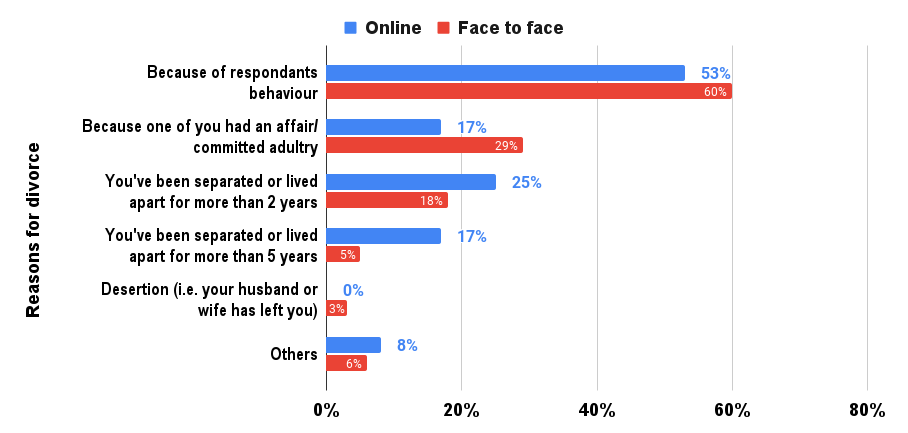
This article has been subdivided into two. The first section will provide you with tips on how to let go of the past and the second section is for partners that are willing to take steps to help their spouse heal from past hurts.
- 1. How do I let go of the past in a relationship
- 2. What to do when your spouse will not forgive you
Here are links to a few articles in our archive you might find interesting
- How to make my wife love me again after separation
- Signs my separated wife wants to reconcile
- How to help someone with a broken heart
Let’s dive in
HOW DO I LET GO OF THE PAST IN A RELATIONSHIP
While some betrayals are easier to let go of, others are not. They instead open a pandora box of other behavioral inadequacies and traumas that can stifle any relationship to death if unresolved. In worse scenarios, some partners lose their lives. Usually, forgiving a spouse’s betrayal/ letting go of the past can be difficult for various reasons;
1. How the victim weighs or views the act of betrayal. We all have our forbidden sins. We know what we can tolerate and we cannot tolerate from anybody. Our moral ranking is often guided by our value system which we make an open book to our partners. This gives them an understanding of how we rank actions. In many cases of betrayal, the offending partner knew that their actions would not be tolerated by their partner if they found out, yet they still went ahead and committed that act. This is therefore unbearable for the victim.
2. Broken trust. It can be quite difficult to process and accept the fact that a spouse you care for and share a huge part of your life with will deliberately hurt you to such an extent they did. This disappointment stems from broken promises and expectations. This is then accompanied by negative emotions such as the feeling of disrespect, disregard, self-doubt, diminished self-worth, sadness, anxiety, fear, depressions etcetera. The fact that a victim now finds it difficult to anticipate their spouse’s intentions toward them and the marriage, and can not confidently vouch for their spouse, hurts.
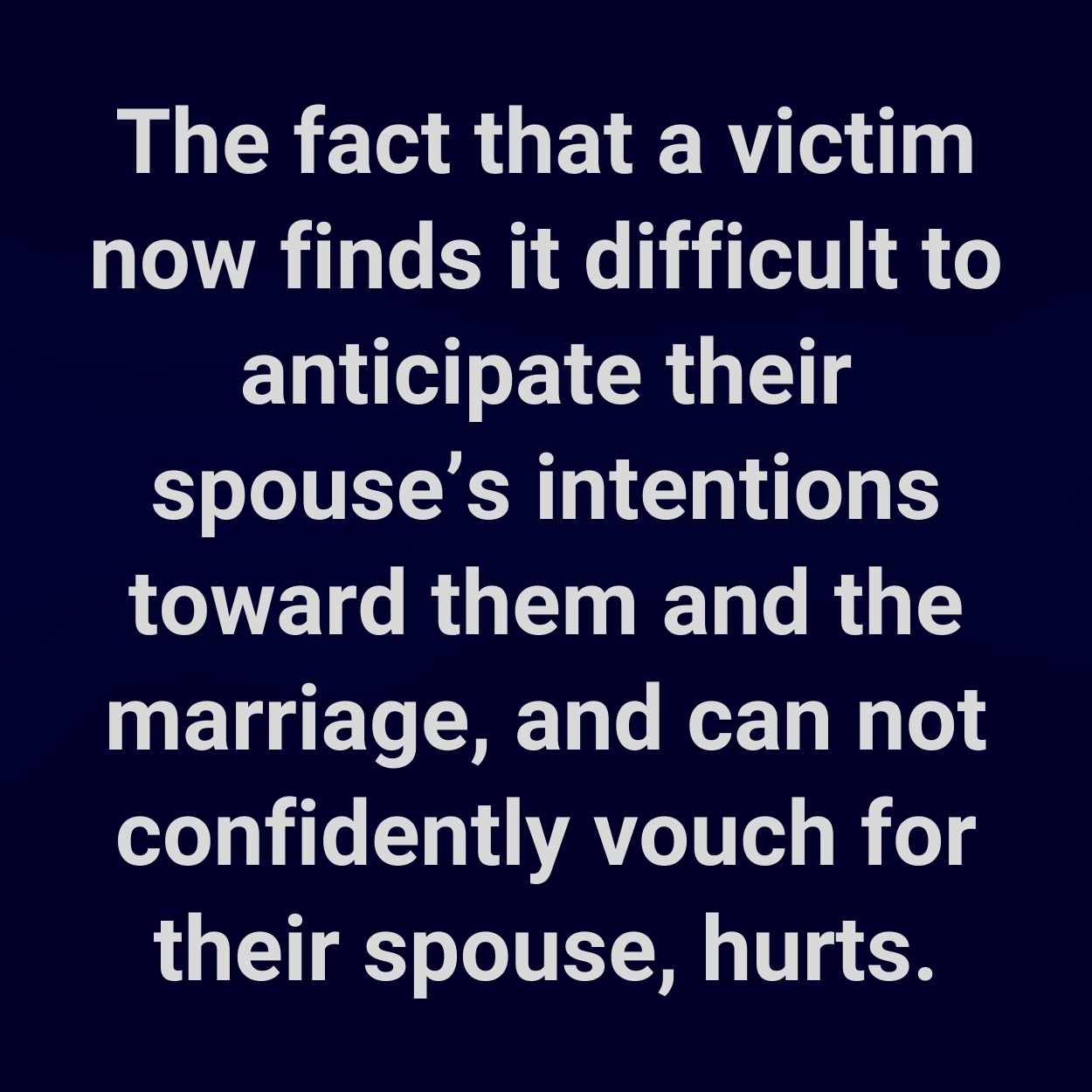
The fear of uncertainty then diminishes the desire to trust again. Sadly, the lack of trust can torment and make anybody uneasy. This is why many victims of spousal betrayal choose to walk away. They do not want to live in fear that they will always second-guess their partner’s intentions and actions. It can be physically, mentally, and emotionally exhausting.
3. The urge to get even. Point 3 is a spillover from points 1 & 2. When a partner commits actions that are considered forbidden, disregarding the trust and emotional wellbeing of their spouse, it is instinctive for the betrayed spouse to want to punish or get even. The punishment manifests itself in different behaviors and attitudes that are hostile to the offender. Many victims of spousal betrayal often allow this urge for vengeance to engulf them and in some cases, they commit worse acts.
Letting go of the past will require a conscious and deliberate effort from you. You won’t wake up tomorrow and automatically feel better. It is a gradual healing process that can be emotionally scorching. Having to accept an experience you wish had never happened, hurts. The fact that you have to forgive, let go of your resentments, and urge to make your spouse suffer for hurting you if you wish to remain in the marriage hurts. Lastly, the need to continue to show your spouse love, compassion, and commitment, albeit undeserving, can be difficult to accept. Here are some of the things you can do to let go of the past;
1. Seek counseling. You need someone to talk to. Someone that can guide and help you unpack your emotions. At this sensitive phase of your marriage and life, the worst thing you can do is act impulsively or be around someone who will encourage you to act impulsively. You need people that will give you strong and positive emotional support to scale through.
2. Whether or not you wish to reconcile with your spouse and work on your marriage, you still need to permit yourself to truly forgive that betrayal. Let’s start by unraveling what forgiveness/ “letting go of the past” entails. Forgiveness is the “willingness to abandon one’s right to resentment, condemnation and subtle revenge towards an offender who acts unjustly while fostering the undeserved qualities of compassion, generosity and even love towards him or her” (Dallas Baptist University counseling guide).
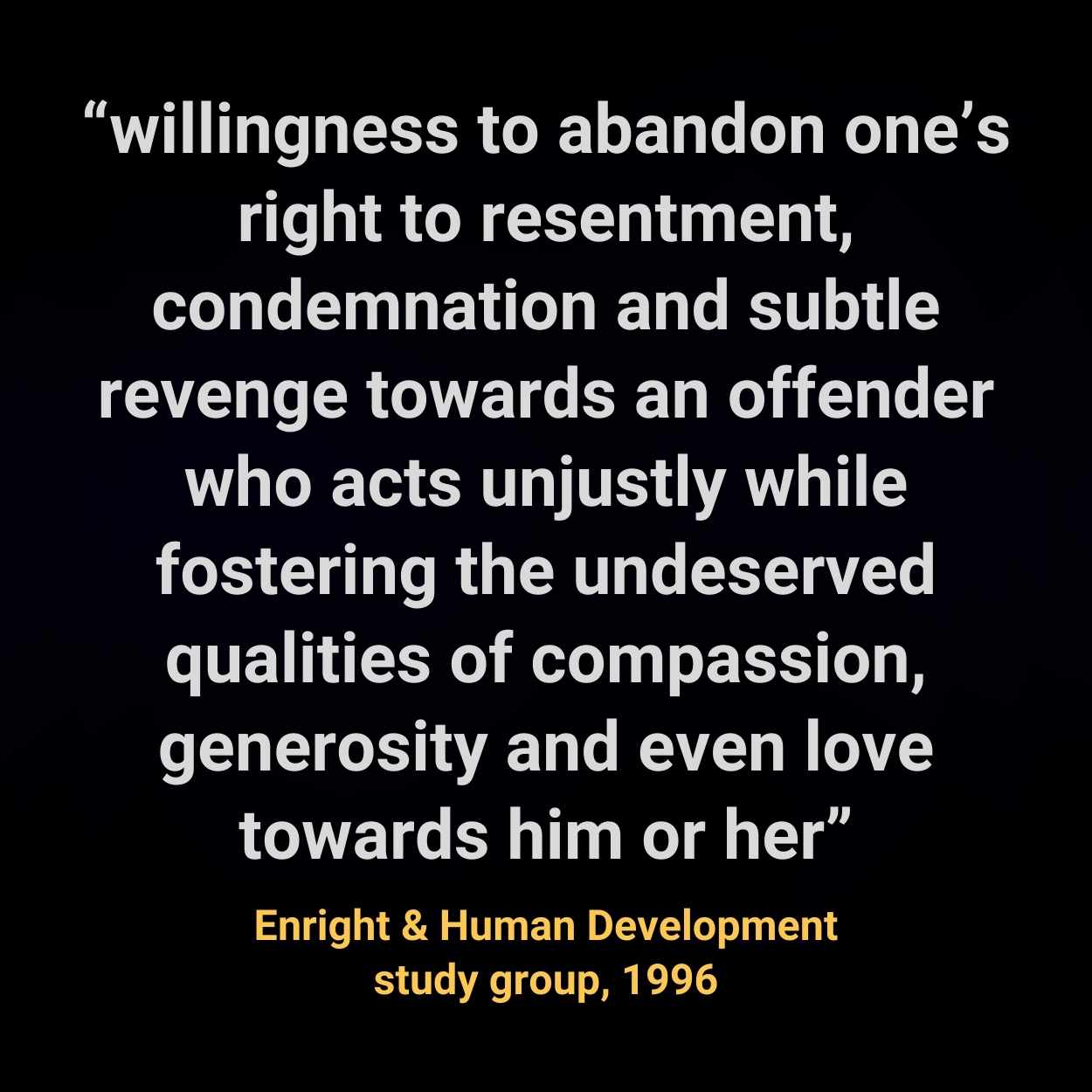
If you wish to reconcile with your partner,
- Forgiveness entails that you let go of your hostility towards your partner.
- Forgiveness will require you to stop reminding your spouse of the wrong they have committed.
- Forgiveness entails that you let go of any desire to punish your spouse or make them live in guilt
- Forgiveness will require you to continue to be caring, compassionate, and loving to your spouse if you want to continue with the marriage.
Forgiveness also means that “regardless of whether the offender deserves or desires to be forgiven, you are ready to release the desire for revenge or for bad things to come to the person who hurt you and move on with your life” (Dallas Baptist University counseling guide). The act of forgiveness is aimed at giving you true freedom from hurt.
3. Develop a strong and positive mindset that will help you to combat negative thoughts. Negative thoughts will provoke negative emotions that may disrupt your peace.
4. Accept the whole experience of betrayal and start dealing with every negative emotion that you feel as a result of it.
5. It is best to stop rationalizing and making excuses for your spouse’s behavior. They decided to betray you. The temptation to blame yourself often creeps in, do not entertain it.
6. Stop associating your self-worth with your spouse’s betrayal.
7. Give yourself a chance to heal. Consciously make decisions that will genuinely aid your healing. Be current with your feelings, make a truthful assessment of them. By doing so, you will be able to put in the needed effort to heal.
8. Be patient with yourself. Go through the process of healing without blocking your emotions. It is ok to cry, feel sad, or angry. Unpacking these emotions is part of your journey to “letting go of the past”.
9. Live beyond the situation. Surround yourself with people and activities that will support and build you. This will help you to stay positive, learn more about yourself, develop other healthy relationships (friendships), and even acquire new skills.
“In order to be free, we must learn how to let go. Release the hurt. Release the fear. Refuse to entertain the old pain.” _-Mary Manin Morrissey
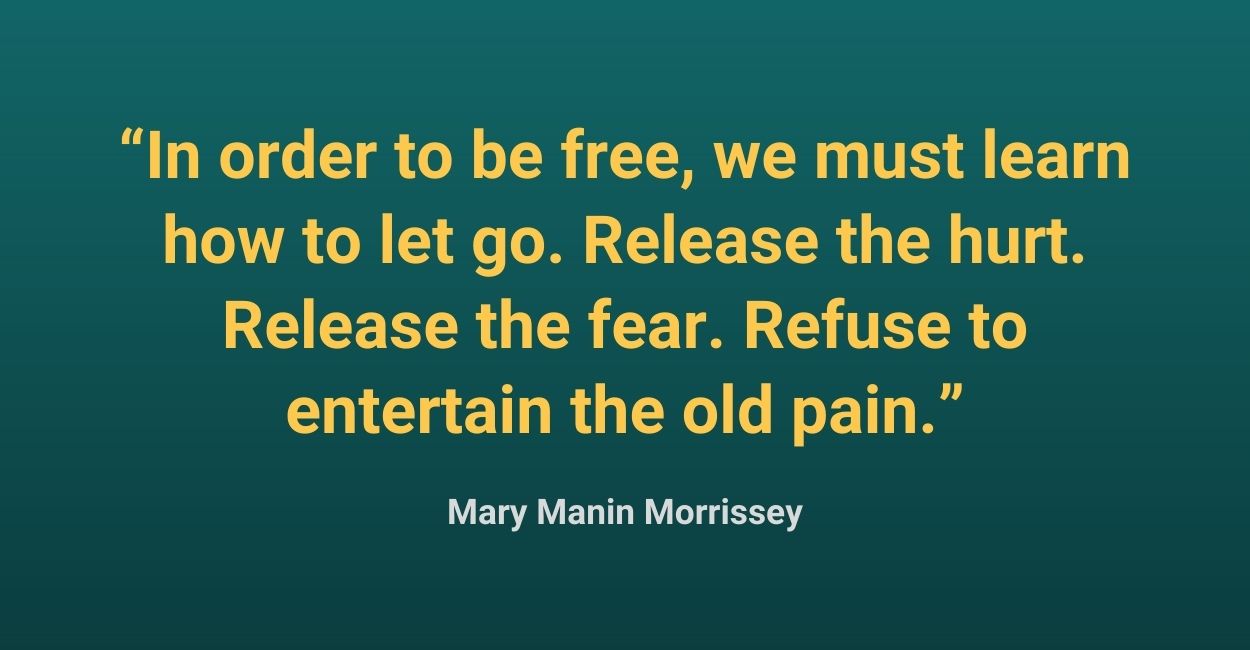
WHAT TO DO WHEN YOUR SPOUSE WILL NOT FORGIVE YOU
As far as forgiveness and reconciliation is concerned in a marriage, it could happen in these scenarios;
- 1. The betrayed is willing to forgive – there is a true sense of remorse from the spouse who betrayed, – there is a willingness to reconcile by both parties.
- 2. The betrayed is willing to forgive – there is a true sense of remorse from the spouse who betrayed – one or both partners are not willing to reconcile.
- 3. The betrayed is willing to forgive – there is no true sense of remorse from the partner who betrayed, – both parties are willing to remain in the marriage.
- 4. The betrayed is unwilling to forgive – there is a true sense of remorse from the partner who betrayed, – one or both partners are not willing to reconcile.
- 5. The betrayed is unwilling to forgive – there is no true sense of remorse from the partner who betrayed, – one or both partners are not willing to reconcile.
Forgiveness takes a special type of strength or grace. It is not easy and you cannot force it out of them. Instead, learn to empathize with your spouse, and give them the necessary space and support that will encourage healing and forgiveness. Below are a couple of things you can do to encourage your spouse;
1. APOLOGISE
Some offenders justify their betrayal, transfer blame and even gaslight their partners. Sometimes they act overly familiar with their spouse and therefore undermine the gravity of their actions. They also try to demand forgiveness and when they don’t notice a change of attitude in their partner, they flare-up. These actions are disrespectful to the person hurting. It makes a bad situation worse. Apologize and truly mean it. After you have apologized, do not expect to be forgiven immediately. Also, do not expect your partner to disregard how they feel and continue like nothing happened to please you. Check How to help someone with a broken heart. You might find a few useful tips in the article,
2. BE REMORSEFUL
Are you truly sorry for your action? Do you regret betraying your spouse? If yes, reinforce your apology with actions that show you are truly remorseful. Be kind, empathize, seek help, be generous, exhaust all options to make amends, and be generally supportive to your spouse. “Remorse is a heavy burden, but in it has great power to awaken men’s souls.” R. William Bennet
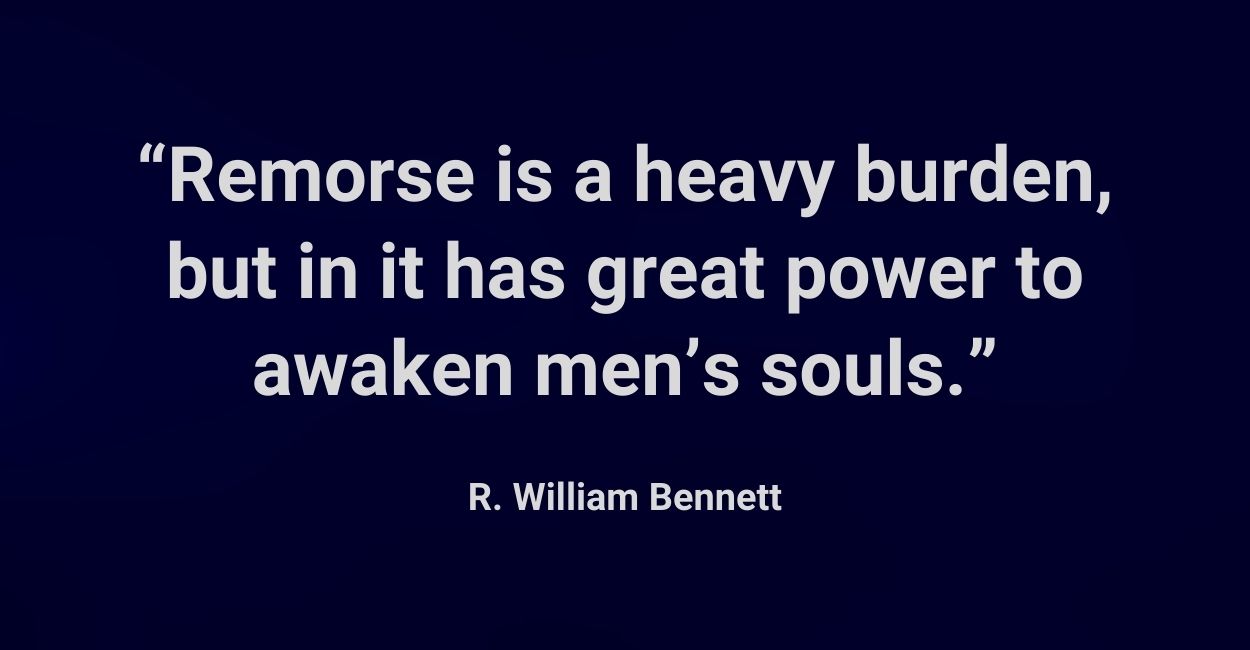
3. ACCEPT THE CONSEQUENCES OF YOUR ACTION
Apologizing and being remorseful does not cancel the consequences of your actions. Actions have repercussions and it is left to your spouse to decide what path they would take to heal from the betrayal. If they are not ready to forgive you, give them space. Continue to seek grace and hope that they come along. If they wish to move on without you, it is a consequence you have to accept
4. BE OPEN TO COUNSELLING
Behavioral change is more powerful than any verbal apology. If counseling will help you become a better version of yourself, avail yourself of it.
5. TRANSPARENCY
Trust has been broken. Your partner may be finding it difficult to believe your future intentions and actions. Communicate them clearly and plainly. Stop doing things that will encourage doubts. You might find this article titled Signs my separated wife wants to reconcile helpful.
“… forgiveness does not exonerate the perpetrator. Forgiveness liberates the victim. It is a gift you give yourself.”- T. D. Jakes.
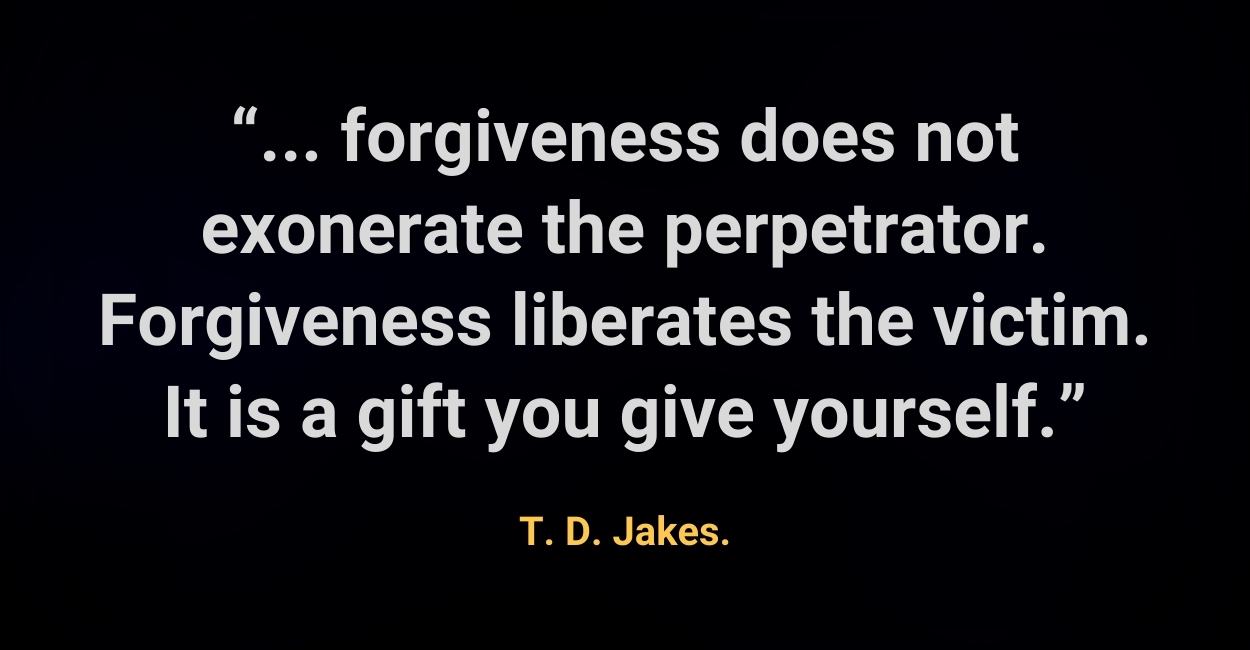
FREQUENTLY ASKED QUESTION
- How do I heal past hurts in my marriage?
- Seek counseling
- Allow yourself to forgive
- Develop a strong and positive mindset to combat negative thoughts
- Go through the motion. Accept how you feel. This will help you deal with your emotions.
- Stop rationalizing and making excuses for your spouse’s betrayal
- Stop associating your self-worth with your spouse’s betrayal or behavior
- Be patient with yourself. Healing comes gradually
- Engage in activities that will build you and surround yourself with supportive people.
2. How do I get over being bitter in my marriage?
Start by understanding the root cause of the bitterness. Is it out of broken trust? Is it as a result of the actions of your spouse before, during, and after the betrayal and how it made you feel? The feeling of disrespect and disregard? Letting go of bitterness may come when you truly forgive your spouse. Consciously desire to free yourself from that disappointment, disrespect, disregard, and any other negative emotions that came with the betrayal. It frees you. If you choose to reconcile with your husband or wife;
- Let go of your desire to hurt your spouse
- Let go of any hostile behaviors and attitudes you have towards him or her
- Avoid reminding them of the wrong they have committed
- Be receptive to their apologies, feelings of remorse, and behavioral change.
3. How do I fix a ruined relationship?
- Seek help
- Be empathetic to the hurting spouse
- Apologize and show remorse
- Work towards attaining a behavioral change
- Be transparent with your partner. This helps them to regain trust.
CONCLUSION
Negative interactions are inevitable in any romantic relationship. While some actions are easier to forgive, others are not. The negative effects of spousal betrayal are difficult to shake off. It comes with the feeling of disrespect, disregard, low self-esteem, diminished self-worth, anger, distrust, and other negative emotions. It is quite instinctive for victims to seek vengeance to get even or feel better. However, there is no guarantee that this reprisal action will help them heal. Forgiveness is the key. We’ve provided steps on how to go about forgiving and letting go of the past. We hope that you find our recommendation helpful.
01 HOUR 48 MINUTES
ESTIMATED TIME DESIGNING AND UPLOADING THIS ARTICLE
11 HOURS 31 MINUTES
ESTIMATED TIME RESEARCHING AND WRITING THIS ARTICLE
You Might Also Like


